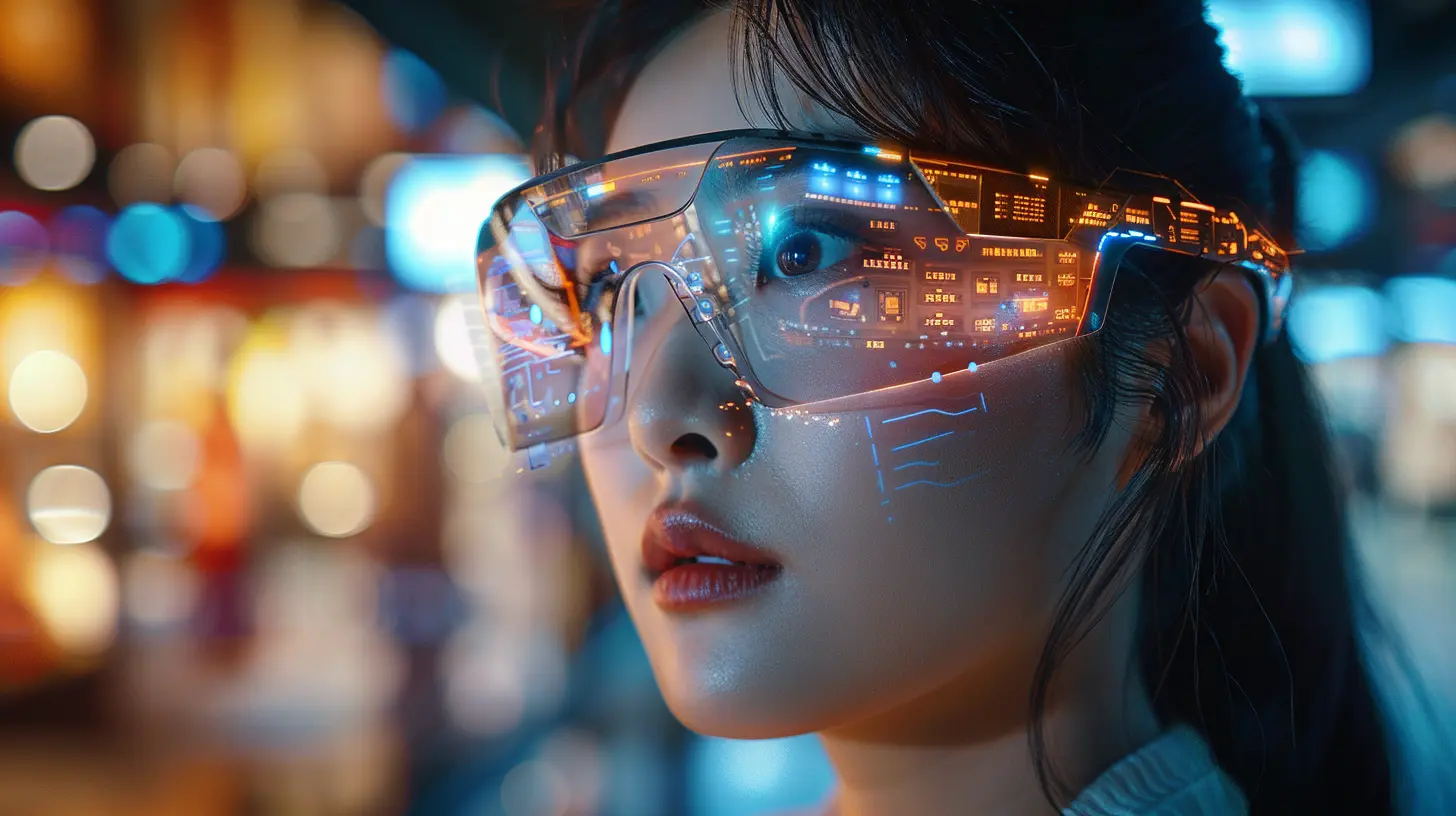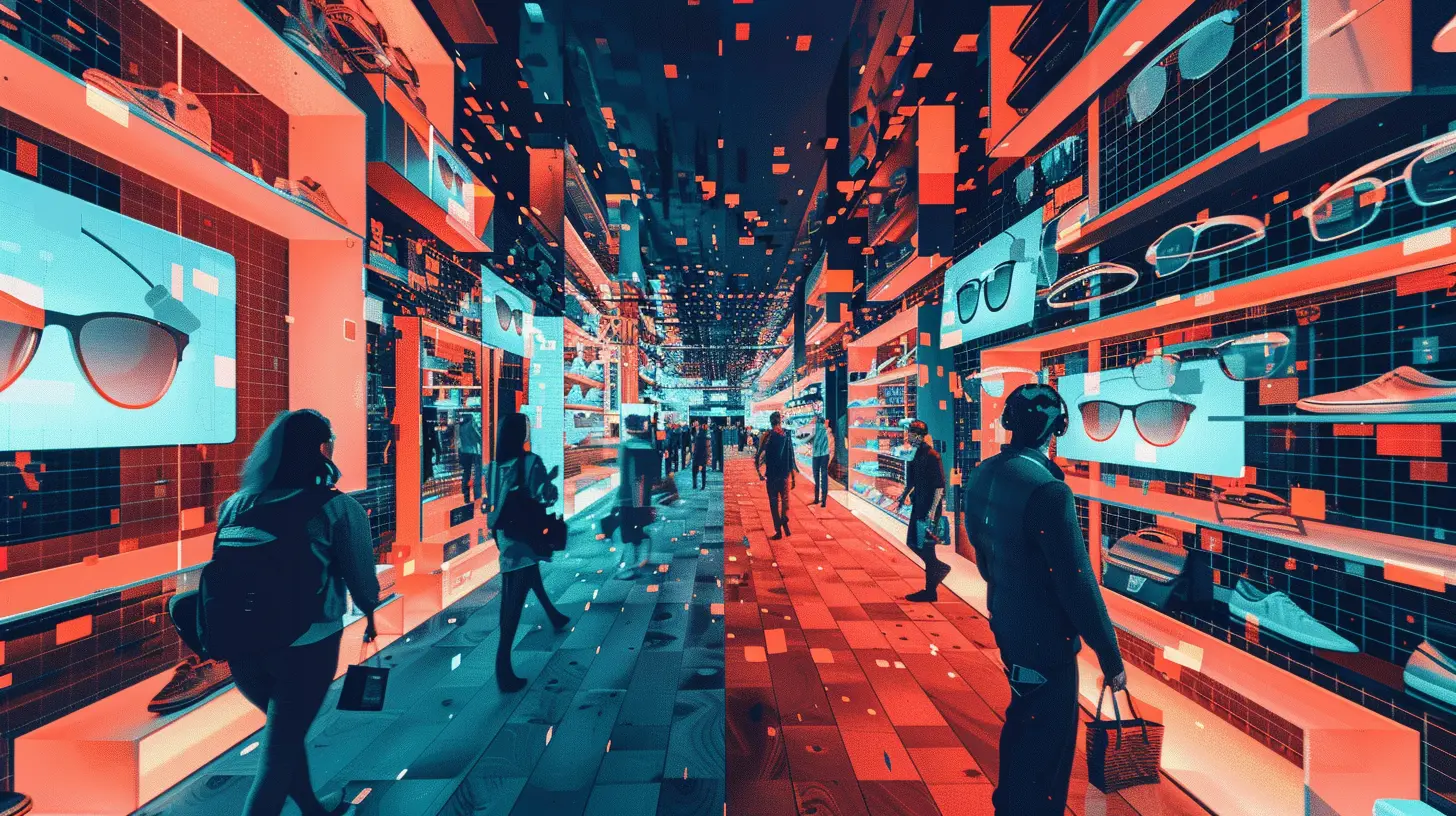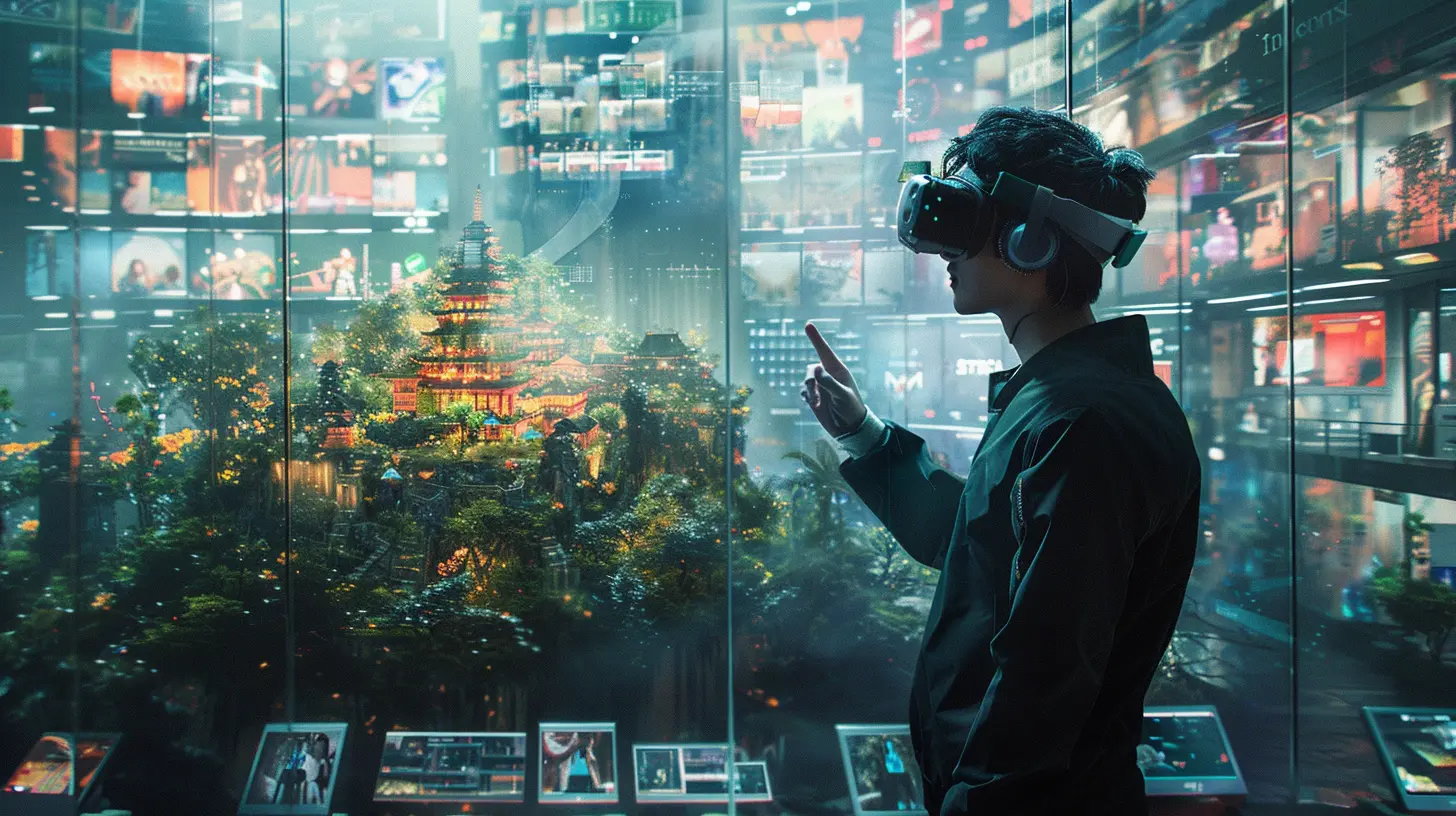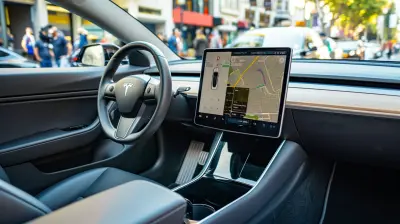The Impact of Augmented Reality on Retail Shopping
20 April 2025
Imagine walking into a store and trying on clothes, testing out furniture in your living room, or even sampling makeup without ever touching a single item. Sounds like something from a sci-fi novel, right? Well, welcome to the world of Augmented Reality (AR), where your retail shopping experience is about to get a major upgrade.
Let’s face it – shopping has changed a lot over the past few years. With the rise of e-commerce, people are now more comfortable shopping from their couches than ever before. But there's still a gap between online shopping and the traditional in-store experience. That’s where AR comes in, bridging the divide and delivering a hybrid experience that might just be the future of retail.
So, let’s dive deeper into the impact of augmented reality on retail shopping, and why it’s becoming a game-changer for both businesses and consumers alike.

What is Augmented Reality?
Before we get into the nitty-gritty of how AR is revolutionizing retail, let’s clarify what we’re talking about here.Augmented Reality (AR) is a technology that overlays digital content (like images, sounds, or text) on the real world. Unlike virtual reality (VR), which immerses you in an entirely digital environment, AR enhances your real environment with digital elements. Think Pokémon Go, but instead of chasing Pikachu in the park, you're trying on a pair of sunglasses or seeing how a sofa looks in your living room.
Now that we’ve got that out of the way, let’s explore how AR is changing the way we shop.

Enhancing the Shopping Experience
Let’s be honest, shopping can sometimes be a hassle. Whether it’s trying to figure out if that couch will fit in your living room or questioning whether the dress you’re eyeing will look good on you, there’s always some uncertainty. This is where AR steps in.Virtual Try-Ons and Fitting Rooms
One of the biggest innovations AR brings to the table is the ability to try on products virtually. Clothing, accessories, makeup – you name it, you can now try it on without ever stepping foot in a store.Think about it: you’re shopping for a new pair of sneakers. Instead of wondering if they’ll suit you, you can simply point your phone at your feet, and boom – there they are, on your feet, in real-time. AR apps can even allow you to switch colors, sizes, and styles with just a tap. It's like having a personal fitting room in your pocket, minus the cramped spaces and bad lighting.
Some brands, like IKEA and Sephora, are already harnessing AR to give customers a more interactive experience. IKEA’s AR app, for example, lets you place furniture in your home virtually, so you can see if that bookshelf fits perfectly before you buy it. No more trying to squeeze a giant box into your car just to find out it doesn’t fit in your space!
Personalized Shopping Experiences
AR also allows for a more personalized shopping experience. Retailers can use AR to show customers products that are tailored to their preferences, based on past purchases or online behavior. Essentially, AR can act like your own personal shopping assistant, suggesting items and even showing you how they might look or work in your space.Take beauty products, for instance. Brands like L'Oréal are using AR to let customers virtually try on makeup through their phones. No more guessing if that lipstick shade will suit you – you can see it on your face instantly. That’s personalization on a whole new level.
Reducing Purchase Hesitation
If you’ve ever bought something online only to return it because it didn’t quite meet your expectations, you’re not alone. AR is helping to reduce this kind of purchase hesitation. When customers can see exactly how a product will look or work in their space or on their person, they’re far more likely to feel confident in their purchase.For example, buying a new piece of furniture can be a gamble – will it fit in the room? Will it clash with the wallpaper? With AR, you can place a digital version of that piece directly into your room and see how it fits. This cuts down on returns and boosts customer satisfaction. Fewer returns mean happier customers and happier retailers – it’s a win-win.

AR and E-Commerce: A Match Made in Heaven
While AR is making strides in physical stores, its real potential lies in e-commerce. With the online shopping world booming, brands are constantly looking for ways to stand out and offer something unique. AR is the secret weapon that’s helping them do just that.Bringing the In-Store Experience Online
One of the biggest challenges of online shopping is that it lacks the tactile, immersive experience of browsing in a store. You can't touch the fabric of that jacket, try on those shoes, or see how that coffee table looks in your living room. AR bridges this gap by bringing these experiences online.For example, imagine shopping for a new pair of sunglasses. You could use an AR app to try them on virtually, see how they look from different angles, and even get recommendations for similar styles. It’s like having a fitting room at your fingertips, no matter where you are.
Boosting Customer Engagement
Let’s be real – online shopping can sometimes feel like a chore. Scrolling through endless product listings can get pretty boring. But AR adds a layer of interactivity that keeps customers engaged.Take Warby Parker, for example. The eyewear brand uses AR to let customers try on glasses virtually. Not only does this make the shopping experience more fun, but it also allows customers to make more informed decisions, leading to higher satisfaction and fewer returns.
And it's not just fashion. Brands across all industries are using AR to create more immersive, engaging shopping experiences. From automotive companies letting you see cars in your driveway to home improvement stores helping you visualize what a new kitchen might look like, AR is transforming how we shop online.

AR in Physical Retail: More Than Just a Gimmick
While AR is making waves in e-commerce, it’s also finding a home in physical retail stores. In fact, some retailers are using AR to enhance the in-store shopping experience in ways that go beyond just virtual try-ons.Interactive Displays and In-Store Navigation
Imagine walking into a store and using your phone to scan a product. Instantly, you’re provided with detailed information, reviews, and even videos showing how the product works. Retailers are using AR to create interactive displays that give customers more information than they could ever get from a simple product label.And it doesn’t stop there. AR is also being used for in-store navigation. Large stores can be overwhelming, and finding what you’re looking for can be a pain. But with AR, you can use your phone to find the exact location of the product you need. It’s like having a personal guide leading you straight to the item you’re after.
Enhancing Customer Loyalty and Engagement
Retailers are also using AR to create more engaging in-store experiences that build customer loyalty. For example, some stores are using AR to create interactive treasure hunts or gamified experiences, where customers can earn rewards or discounts by participating.This not only makes shopping more fun, but it also encourages customers to spend more time in the store, increasing the likelihood of making a purchase. Plus, it’s a great way to build brand loyalty and keep customers coming back for more.
The Future of AR in Retail
So, what’s next for AR in retail? Well, we’re just scratching the surface of what’s possible.As AR technology continues to improve, we can expect even more seamless and immersive shopping experiences. Imagine walking into a store and having personalized recommendations pop up on your phone based on your preferences and past purchases. Or picture browsing an online store where every product can be visualized in your home or on your body instantly.
And with the rise of 5G technology, AR experiences will become even more fluid and accessible, with less lag and more real-time interactions. This will make AR shopping experiences even more engaging and lifelike.
Challenges and Considerations
Of course, there are still some challenges to overcome. For one, not all customers are familiar with AR technology, and there may be a bit of a learning curve for some. Retailers will need to invest in educating their customers and making the technology as user-friendly as possible.There are also concerns about data privacy, as AR apps often require access to cameras and other personal data. Retailers will need to be transparent about how they’re using this data and ensure they’re taking steps to protect customer privacy.
Conclusion: AR is Here to Stay
In short, the impact of augmented reality on retail shopping is undeniable. From virtual try-ons to personalized experiences and beyond, AR is transforming the way we shop, both in-store and online. It’s making shopping more fun, more engaging, and ultimately, more convenient.While there are still some hurdles to overcome, there’s no doubt that AR is here to stay. And as technology continues to evolve, we can expect even more exciting innovations in the retail space. Whether you’re a shopper or a retailer, it’s time to embrace the future – and that future is augmented.
all images in this post were generated using AI tools
Category:
Emerging TechnologiesAuthor:

Kira Sanders
Discussion
rate this article
8 comments
Maverick McConkey
Augmented reality is like having a personal shopping assistant in your pocket! It's fascinating how it transforms our retail experience, making it more interactive and fun. Can’t wait to see where this tech takes us next!
May 14, 2025 at 11:51 AM

Kira Sanders
Thank you! We're excited too—augmented reality really is revolutionizing retail, enhancing interactivity and engagement like never before.
Paul McKinnon
Augmented reality revolutionizes shopping, enhancing customer engagement dramatically.
May 6, 2025 at 3:46 AM

Kira Sanders
Thank you for your comment! Indeed, augmented reality is transforming the retail landscape by creating immersive experiences that significantly boost customer engagement.
Zealot McFarlane
Augmented reality enhances customer experience by enabling interactive product visualization, ultimately influencing purchasing decisions and driving retail innovation.
April 28, 2025 at 11:08 AM

Kira Sanders
Thank you for your insight! Augmented reality indeed transforms retail by offering immersive experiences that engage customers and influence their buying choices.
Fiona Luna
This article effectively highlights how augmented reality is revolutionizing retail shopping. By enhancing customer experiences through immersive interactions, AR not only boosts engagement but also drives sales. It’s exciting to see how technology continues to reshape the retail landscape for the better.
April 28, 2025 at 2:41 AM

Kira Sanders
Thank you for your insightful comment! I'm glad you found the article highlights the transformative potential of AR in retail. Exciting times ahead!
Miles McIlroy
Revolutionizing customer experience!
April 27, 2025 at 11:59 AM

Kira Sanders
Thank you! Augmented reality truly has the potential to transform how customers shop and interact with brands.
Lysander Flores
Finally, trying on shoes without the hassle!
April 23, 2025 at 10:50 AM

Kira Sanders
Absolutely! Augmented reality revolutionizes the shopping experience by allowing customers to try on shoes virtually, eliminating the hassle of physical fitting.
Karina McIlroy
Augmented Reality revolutionizes retail by enhancing customer experiences and bridging the gap between digital and physical.
April 22, 2025 at 8:17 PM

Kira Sanders
Thank you for your insightful comment! Indeed, augmented reality is transforming retail by creating immersive experiences that seamlessly connect the digital and physical worlds.
Rusty Barnes
Great insights! AR definitely enhances shopping experience!
April 21, 2025 at 2:47 AM

Kira Sanders
Thank you! I'm glad you found the insights valuable. AR truly is transforming the shopping experience!
MORE POSTS

The Role of AI in Personalized Medicine

Smart Thermostats and Their Role in Reducing Energy Consumption

The Future of Wearable Tech: What’s Next?

The Potential of Brain-Computer Interfaces for Accessibility

How Touchscreens Are Powering the Next Generation of Cars
Boosting Your Fitness Motivation with Data from Fitness Trackers